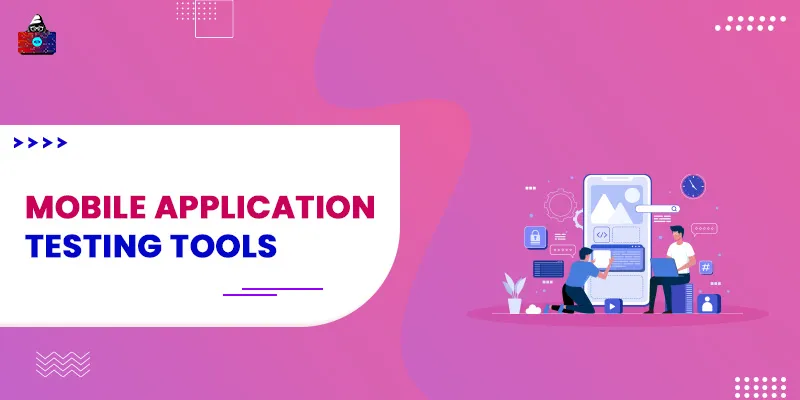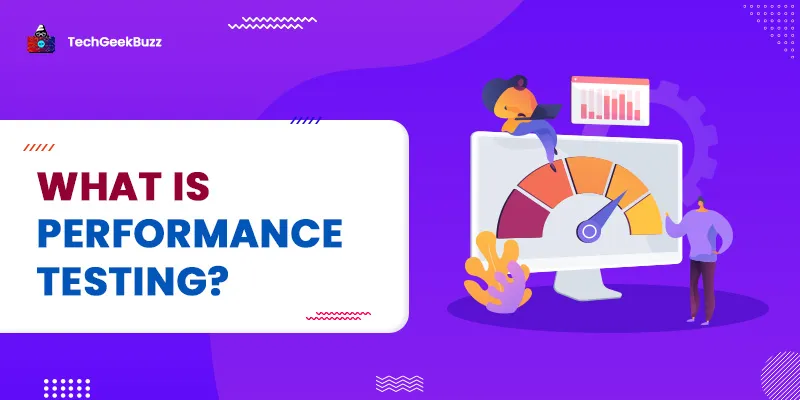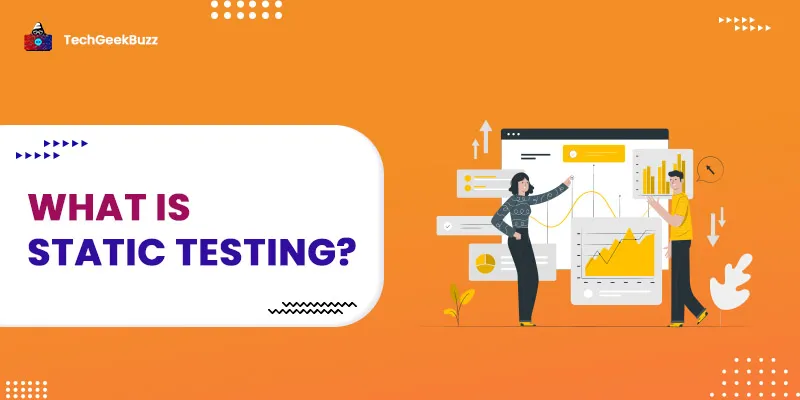Mobile applications are gaining popularity. As we carry mobile devices throughout the time, getting everything on these handy devices is preferred. In the last 5-6 years, the mobile apps market has grown so much that there is practically a mobile app available for anything. From ordering essentials to getting an online appointment for medical consultation, mobile apps have made life easy. Companies invest millions and billions to get their apps top the people’s choice list. Due to increased competition and immense alternatives available, it is of paramount importance to design an app that is functionally stable and is compatible with the vast user base available. Only an app checked on all important parameters can withstand today’s dynamic market. The underlying reasons could be the vast number of options available, stiff competition, different range of devices, and whatnot! In such a ruthless market scenario, one that can increase the chances of your app winning customer preference is “Testing your mobile applications for everything”. Feeling perplexed? Thanks to technology, we have so many mobile application testing tools. But what do mobile app testing tools do? Do one need these to measure the apps inside-out? Mobile application testing is a process of examining developed applications on performance, functionality, compatibility, and management parameters. The software for testing apps detects any possible bugs, durability, or usability faults. This testing software brings speed, accuracy, and value to the mobile app testing process.
Challenges for Mobile Application Testing Tools
Are you an android or iOS user? No matter which mobile operating system you use, you need a perfect application; fully compatible with your handset, without any functional error, and works optimally. For this, the application has to be tested efficiently that too with its operating system in real-time conditions. That’s where mobile testing tools face challenges. Some tools can test only Android while some function best with iOS applications and nevertheless, some can run rigorous tests on both mobile operating systems. By the end of this article, we aspire to present you with a better understanding of the mobile application testing tools available.
Best Mobile Application Testing Tools
1. Kobiton
Kobiton is a cloud-based mobile application testing platform providing access to real-time devices to run manual as well as automated tests with authentic results. The platform can test mobile apps for functionality, visuality, and performance of both Android, iOS, and hybrid applications.
Why do Programmers Choose Kobiton?
Its friendliness, speed, and easy management have made it stand firm among competitors. The platform is friendly to programmers, DevOps, and testers. Some of the robust features of Kobiton are:
- It has device lab management software that creates the optimum mobile testing cloud that connects all devices to the private cloud.
- Allows scriptless automation thereby, increases speed and reduces the scope of manual errors.
- Kobiton keeps on releasing regular updates for its lab management to ensure superior performance, efficiency, and stability.
- It has incorporated testing history and information logs for hassle-free operation.
- Has support for Appium 1.6.4.
Apart from these, the availability of a free trial that too without the requirement of credit card details has gained Kobiton a loyal user base over the years. The free trial allows users to comprehend the functionality and robust framework of Kobiton.
2. Appium
Appium is an open-source mobile app testing tool bringing automation, accuracy, and speed to testing cycles. It can test native iOS, Android (version 2.3 onwards), and hybrid apps. With easy test setup steps, Appium provides rapid functional testing for compatible platforms. Some of its considerable benefits are:
- It supports Java, Ruby, C#, and other languages of the WebDriver library.
- Easy to configure on different platforms. Just a few steps and you are good to go.
- Doesn’t need any specific programs as a prerequisite for installation.
- Eliminates the need for recompilation of mobile apps on different platforms.
- Supports iOS’s Safari and various Android browsers.
In addition to these, Appium can also be synchronized with the TestNG testing framework . A robust framework, support for many languages, and access to the WebDriver library have made Appium a leading option in the mobile app testing market.
3. Perfecto
Perfecto is a cloud-based mobile app testing tool providing cloud-based manual, automated, performance testing, and monitoring of mobile apps. It allows easy testing for Android and iOS through all stages of the software development life cycle . Perfecto runs quality tests in no time thereby, increasing speed, accuracy, and quality assurance. It can intelligently segregate feedback and bugs and initiate fixing of the issue. Also, Perfecto can integrate with CI/CD tools and various IDEs. Its smart analysis system provides inside parameters for test frameworks thereby, delivering reporting at the micro-level. Its performance and testing efficiency have always delivered premium results and have gained the industry’s trust over years. Perfecto provides a free trial for building a better understanding of the offerings and verticals of the mobile app testing platform.
4. Selendroid
Also known as Selenium for Android, Selendorid is an open-source platform able to interact with multiple devices and emulators. It drives the UI of native Android and iOS as well as of hybrid apps. The tests run on Selendroid are written in Selenium 2 client API and test codes are based on Selenium 2 and WebDriver API.
Features to Consider
- Complete compatibility with JSON wire protocol.
- The app can be tested in a non-final state, no alteration for automation is needed.
- UI elements can be easily tracked by varied types of locators.
- Can work optimally with multiple devices at the same time.
- Can help track the current position of the app’s UI by Selenium inspector; an important tool of Selendroid.
- It provides support for multiple Android target APIs.
To get Selendroid function optimally on a system, a system must have the following:
- The system should have Java SDK
- JAVA_HOME should be configured
- Latest Android - SDK must be installed
- sudo dpkg –add-architecture i386, sudo apt-get update, sudo apt-get install libc6:i386 libncurses5:i386 libstdc++6:i386 are required to be in a system for 64bit Linux machine.
5. Testdroid
It's a cloud-based platform providing increased automation at less cost. Testdroid helps developers in saving time with rapid tests. It possesses no limitations in testing apps for operability and functionality parameters. It is well known for reducing risk factors associated with mobile app testing. Testdroid allows agile testing as well and is, therefore, preferred by a vast number of developers and software testers. It has helped numerous apps improve their ratings.
How to Get Started with Testdroid?
Start by signing in to the IBM Bluemix developer console to get all the reports and approved access to the Cloud administration. Under Services, check Mobile and you'll see a list of services offered by IBM Bluemix. Select Testdroid Cloud and follow the guidelines to set up an account, space, and other important information. Testdroid is available for $499- $4999/ month only.
6. Test Project
It is the world’s first open-source cloud-based mobile app testing tool. It is a community-driven project that enables the testing of Android, iOS, and hybrid mobile apps seamlessly. To ensure quality testing with optimum speed and accuracy, Test Project is often integrated with Selenium and Appium. Test Project has a powerful SDK with in-built recording functionalities to create and use add-ons or to set up tests thereby, getting configured in easy steps and no need for any compound settings. The created and shared add-ons can be used by teams, easily establishing testing environments for easy collaborations. It has no complications for integration with CI/CD frameworks. The detailed reporting and interactive dashboard make data reading and test result analysis easy and hassle-free. Test Project has delivered promising results in the past and has, therefore, amassed a galore of positive reviews.
7. TestComplete
TestComplete supports both Android and iOS devices. It can run efficient tests for both mobile platforms. TestComplete automates the process of mobile app testing with increased accuracy and precision. It can set up tests on virtual devices, real mobile devices, or emulators. It presents no limitation for test script writing and provides script-free operation. TestComplete records or replays actions from various programming languages such as Python, and JS. TestComplete can create, manage, and can set up automated GUI tests with increased efficiency on both Android and iOS platforms. In addition, it also provides access to custom libraries. Its accelerated cross-platform testing functionality has given it a robust place in today’s market.
8. UI Automator
This is an open-source platform for testing the UI of mobile apps. UI Automator automates the whole process and propounds no constraints on technology. It works on automated functional test cases to increase the accuracy and efficiency of software tests.
Some of its Worth-Mentioning Advantages are:
- Can function on one or more devices.
- The API of UI Automator is bundled in the UI automator.jar file in the platforms/directory. The in-built API includes class exceptions and interfaces.
- Uses JavaScript scripts.
You can get started with UI Automator by having the following in your system:
- Android Studio (latest version),
- An emulator with compatibility for Android 4.3 or higher, and
- An understanding of JUnit .
Conclusion
Mobile applications serve us with a galore of functionalities. No matter what we want to get, we look for a mobile app for that. To ensure maximum impact, mobile applications must be tested properly for functionality, operationality, and everything else! While there are immense tools available for automating mobile app testing, some are functionally superior. Mobile application testing tools like UI Automator and Selendroid need specific system settings while Kobiton and Appium come with flexible system compatibility. No matter which mobile app testing tool you use, always look for important details, such as compatibility, costs, functionality, and supported languages. Next time you choose a mobile app testing tool, consider all the parameters of the same.
People are also reading:



![What is Waterfall Model? [Phases, Pros, & Cons]](/media/new_post_images/Waterfall_Model.webp)

Leave a Comment on this Post